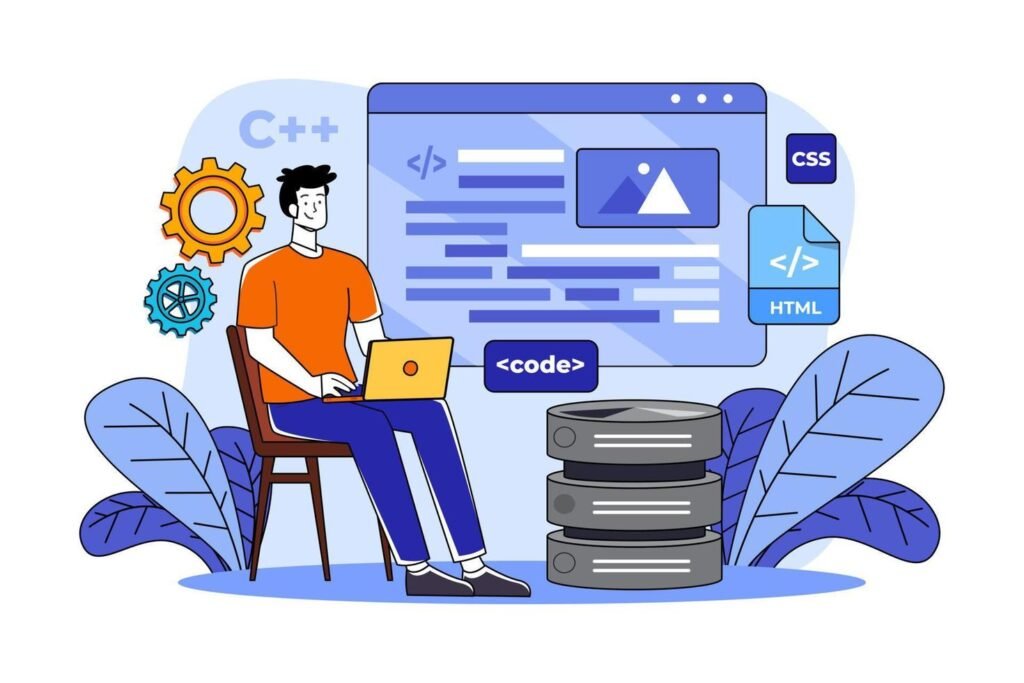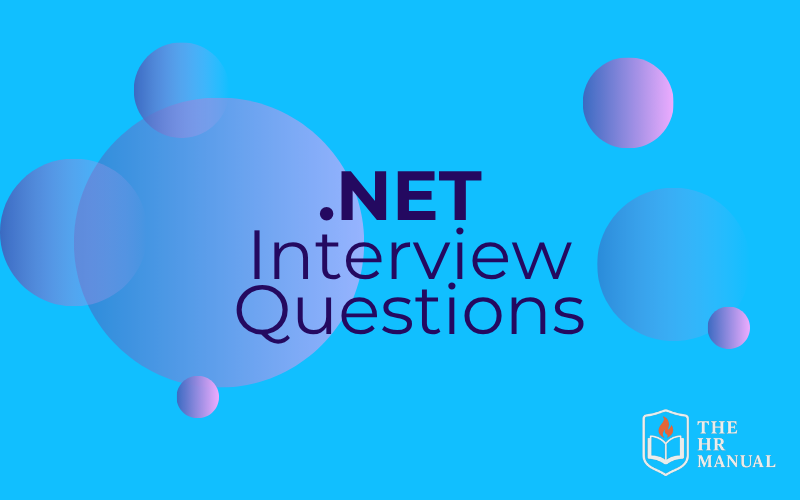.NET interviews at a mid-to-senior level will require more understanding of that actual framework. In the interview, you will probably be expected to demonstrate a strong understanding of architectural thinking, optimizing performance and a deep knowledge of Common Language Runtime. Use these 20 .NET interview questions, with detailed answers, to help you confidently tackle your next interview. These .NET interview questions were formed from years of development interviews I conducted and sat in on with hiring managers.
If you are preparing for a role in enterprise or architecture or cloud-based .NET solutions, these .NET interview questions will help you cover the core topics in your interviewers and set you above the rest.

1. What is the difference between .NET Framework, .NET Core, and .NET 5/6+?
Answer:
- .NET Framework: Windows-only, mature, and supports desktop/web apps.
- .NET Core: Cross-platform, open-source, optimized for microservices and cloud.
- .NET 5/6+: Unified platform combining the best of both, used for all workloads (mobile, web, desktop, IoT).
2. What is the CLR and what does it do?
Answer:
The Common Language Runtime (CLR) is the execution engine for .NET. It handles memory management, garbage collection, type safety, exception handling, and code security.
3. Explain the difference between value types and reference types in .NET.
Answer:
- Value types (e.g., int, struct) store data directly and are stack-allocated.
- Reference types (e.g., class, object) store references to data and are heap-allocated.
4. What are some new features introduced in C# 10 or C# 11?
Answer:
Features include:
- Global using directives
- File-scoped namespaces
- Record structs
- Required members
- Raw string literals
These show up often in advanced .NET interview questions, especially in teams using the latest LTS versions.
5. What are generics in .NET and why are they important?
Answer:
Generics allow you to define type-safe data structures without committing to actual data types. They improve code reusability and performance by avoiding boxing/unboxing.
6. What is dependency injection in .NET Core?
Answer:
Dependency Injection (DI) is a design pattern used to decouple object creation. In .NET Core, it’s built-in via IServiceCollection, allowing easy configuration of services and lifetime scopes.
7. Explain the difference between IEnumerable, IQueryable, and List in .NET.
Answer:
- IEnumerable: Used for in-memory iteration.
- IQueryable: Builds expression trees for deferred execution, ideal for querying databases.
- List: A concrete collection that stores items in memory.
Knowing when to use each is crucial for data-intensive roles and shows up often in .NET interview questions.
8. What is the difference between Task and Thread?
Answer:
- Thread is a lower-level abstraction for concurrent execution.
- Task is part of the Task Parallel Library, better for async programming, with less resource overhead.
9. What is the purpose of async and await in .NET?
Answer:
They simplify asynchronous code. async marks a method as asynchronous, and await pauses execution until the awaited task completes without blocking threads.
10. Explain middleware in ASP.NET Core.
Answer:
Middleware components handle requests and responses in a pipeline. Each component can process and forward the request, making it ideal for logging, auth, CORS, and error handling.
11. What is the difference between ConfigureServices and Configure in Startup.cs?
Answer:
- ConfigureServices: Registers services into the DI container.
- Configure: Sets up the middleware pipeline for handling HTTP requests.
This is a favorite among .NET interview questions for senior web developers.
12. How does garbage collection work in .NET?
Answer:
Garbage collection in .NET is automatic and generational (Gen 0, Gen 1, Gen 2). It reclaims memory from unreachable objects to optimize performance.
13. What are SOLID principles and how do you apply them in .NET development?
Answer:
- S: Single Responsibility
- O: Open/Closed
- L: Liskov Substitution
- I: Interface Segregation
- D: Dependency Inversion
These principles promote maintainable and testable code, often expected in responses to .NET interview questions involving design patterns.
14. What’s the difference between abstract class and interface in C#?
Answer:
- Abstract class: Can have implementation and fields.
- Interface: Cannot contain fields (prior to C# 8), only method signatures.
Interfaces offer better multiple inheritance.
15. How do you implement logging in ASP.NET Core?
Answer:
Use built-in logging providers via ILogger<T>. You can also configure logging in appsettings.json and integrate with tools like Serilog, Seq, or ELK.
16. What is Entity Framework Core and how is it different from EF 6?
Answer:
EF Core is a lightweight, cross-platform ORM. Unlike EF 6, it supports LINQ-to-SQL, better performance, shadow properties, and alternate keys.
17. What are some common performance tuning techniques in .NET?
Answer:
- Use Span<T> and Memory<T> for buffer manipulation
- Optimize LINQ queries
- Minimize object allocations
- Use ValueTask for high-throughput async methods
Performance-related .NET interview questions help identify developers who go beyond coding basics.
18. What is Kestrel in .NET Core?
Answer:
Kestrel is the cross-platform web server used by ASP.NET Core. It is lightweight, fast, and often runs behind reverse proxies like IIS or Nginx.
19. What are minimal APIs in .NET 6/7?
Answer:
Minimal APIs allow quick setup of HTTP APIs with less ceremony. They’re ideal for microservices and fast prototyping.
20. How do you secure an ASP.NET Core application?
Answer:
Implement HTTPS, validate input, use identity-based authentication (like JWT), and apply the principle of least privilege in roles and access.
Final Thoughts
These 20 .NET interview questions will create a strong for anyone looking to move into a mid-level or senior role. While syntax is very important, interviewers will want to know if you can build applications that are scalable and secure. While theses .NET Interview questions are perfect to start your interview prep, it is important to note that this topic is very deep in nature and are only a starting point for your
If you’re preparing for interviews, bookmark this page and study these .NET interview questions until your answers feel like second nature.




